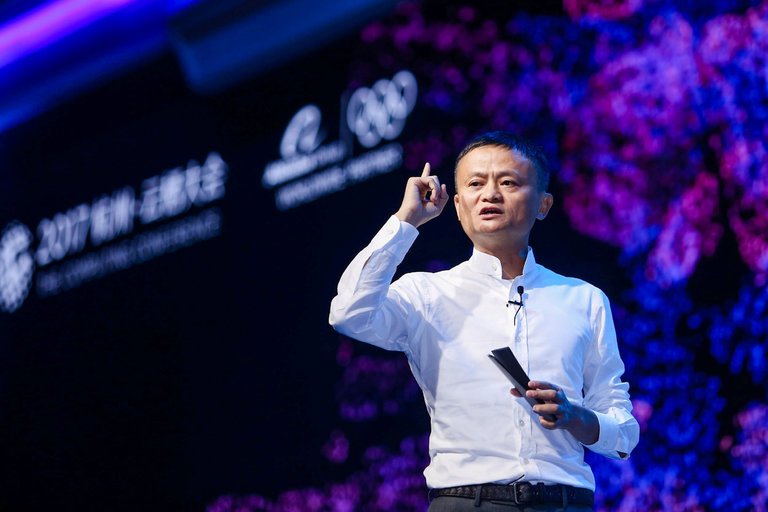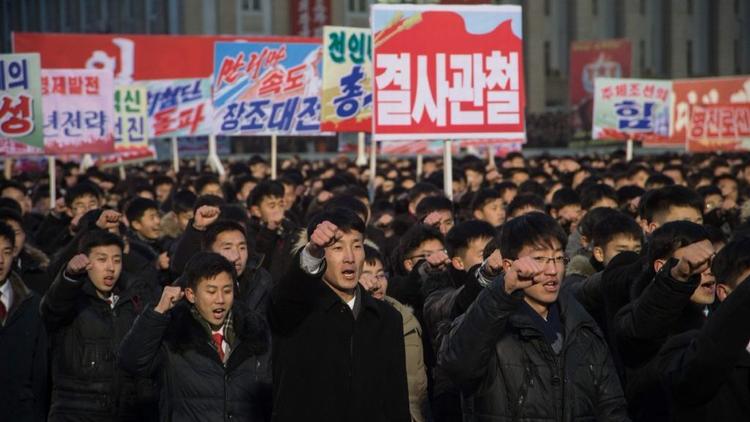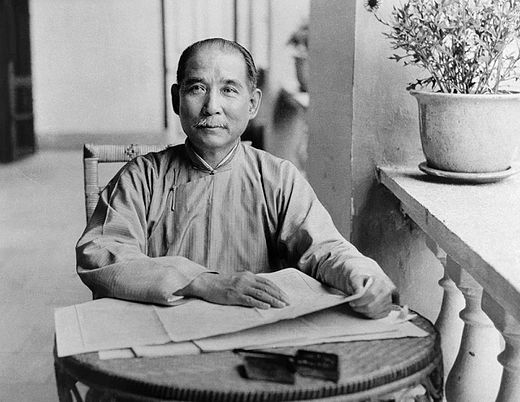
 U.S. Rejects Sale of Moneygram to China's Ant Financial
U.S. Rejects Sale of Moneygram to China's Ant FinancialJack Ma, founder and executive chairman of Alibaba, China's major - and by many measures the world's largest - ecommerce company suffered a blow from the Trump administration this week when the U.S. rejected the $1.2 billion sale of money-transfer service Moneygram to Ant Financial, an Alibaba affiliate.
The latest strain to the China-U.S. relationship comes only a year after Ma met with President-elect Trump at Trump Tower. Now he is facing the failure of one of the most high-profile financial deals at the hands of the man he once gushed about as being "smart" and "open minded." Alibaba, which still only gets a fraction of its sales from outside China, was seeking to expand due to intense domestic competition from internet conglomerates like the vastly popular WeChat platform.
The deal was terminated after the Committee on Foreign Investment in the U.S. (CFIUS), a section of the U.S. Treasury, rejected the proposal. While the official reasoning has not been released, it was reported that the rejection was to "mitigate concerns over the safety of data that can be used to identify U.S. citizens, according to sources familiar with the confidential discussions."
The move marks a rocky start to the new year for China-U.S. relations. China-US Focus contributor Sarah Hsu described the trade relationship as the "most precarious in years." Trump's "America First" rhetoric and intense focus on the bilateral trade deficit leaves the future of economic relations uncertain. The rejection of the Moneygram deal, while the most high-profile, is only one of a recent string of failed takeovers. However, the China-U.S. bilateral trade relationship is much larger than deals; the next few months will determine how China and the United States will set the path for 2018 economic relations.
 North Korea Moves Closer to Negotiation with South Korea
North Korea Moves Closer to Negotiation with South KoreaIt has been a busy week for developments on the North Korean nuclear issue. On President Trump's first work day of the new year in Washington, he took the opportunity to weigh in on the situation on the Korean Peninsula, tweeting that sanctions on North Korea were having an impact and that "Rocket man now wants to talk to South Korea for first time." However, his semi-positive tweet of the morning was soon replaced by another, leading to alarm among national security experts and diplomats: "North Korean Leader Kim Jong Un just stated that the "Nuclear button is on his desk at all times.". . .I too have a Nuclear Button, but it is a much bigger & more powerful one than his, and my Button works!"
Experts were quick to respond to the incident. In a prominent article in the New Yorker, Evan Osnos wrote, "For seventy years, American presidents, with rare exceptions, understood that squabbling with a pariah state whose economy is smaller than that of Rhode Island would diminish their own stature and America's standing." Despite widespread alarm on social media, Republicans were not so quick to denounce the president: Sen. John Thune said the tweet was just "Trump being Trump."
Fu Ying, Chair of the NPC Foreign Affairs Committee, posed this question in a recent article for China-US Focus: "Is there hope for a peaceful settlement of the Korean nuclear issue?" Arguably, this week presented a positive move in that direction. On Wednesday, South Korea announced that North Korea had agreed to reopen a cross-border communication channel with South Korea. On Friday, it was reported that talks between North and South Korea would be held in person, on January 9, in a village in the Demilitarized Zone. This thawing in relations began when Kim Jong Un expressed a desire for a peaceful resolution to the decades-old conflict with South Korea during his New Year's address. The moves were greeted warmly by China: Foreign Ministry spokesman Geng Shuang said during a press conference that "China welcomes the recent concrete efforts made by the DPRK and the ROK, hopes the international community will support this." However, Trump administration officials have been less than lukewarm about the recent development. UN Ambassador Nikki Haley said, "We don't think we need a Band-Aid, and we don't think we need to smile and take a picture."
 Pakistan Turns Toward China
Pakistan Turns Toward ChinaAfter recent accusations by President Trump and administration officials that Pakistan is harboring terrorists, and the U.S. move this week to suspend all military assistance to Pakistan, the South Asian country appears to be turning towards China. On Tuesday, a Chinese foreign ministry spokesman defended Pakistan against U.S. criticism, citing the country's "outstanding contribution to the global cause of counter terrorism." The following day, Pakistan's central bank announced that it was dropping the dollar in favor of the Chinese yuan for bilateral trade and investment, explaining the decision by stating that it saw long term benefit as "trade with China will increase significantly going forward."
China is already Pakistan's third biggest export market and accounts for almost 30 percent of Pakistan's imports. Going forward, China is set to invest billions of dollars in infrastructure and development projects in Pakistan as part of the the China-Pakistan Economic Corridor (CPEC), which is a core part of the Belt and Road Initiative. Despite road bumps on some CPEC projects, which China-US Focus contributor Zainab Zaheer has analyzed, the Chinese government is clear on the point that Chinese investment in Pakistan is a "long-term and systematic project" which will bring benefits to both countries.
As China-US Focus contributor Sajjad Ashraf argued after President Trump's American policy review on Afghanistan, which also called out Pakistan, "a normally fractured Pakistan stands united in the face of [Trump's] diatribe." Some see these recent moves by Pakistan to embrace closer relations with China as an inevitable consequence of Trump "pushing Islamabad deeper into Beijing and Moscow's sphere of influence."
 This Week in Chinese History
This Week in Chinese HistoryThis week in Chinese history, on January 1, 1912, over two thousand years of imperial rule in China ended when delegates elected Sun Yat-sen as the first Provisional President of the Republic of China at a meeting in Nanjing. The Wuchang Uprising in October the previous year, which then evolved into the Xinhai Revolution, eventually led to the overthrow of the Qing Dynasty. A republic was formally established on January 1, 1912. Sun Yat-sen's tenure as President of the Republic of China lasted just six weeks. Yuan Shikai, who was considered a more acceptable choice by the Manchu people, replaced him on February 12, 1912. Known as the Father of Modern China, Sun Yat-Sen spent much of his time in exile.
Prepared by China-US Focus editorial teams in Hong Kong and New York, this weekly newsletter offers you snap shots of latest trends and developments emerging from China every week, while adding a dose of historical perspective.
- 2017-12-22 Trump’s National Security Strategy Labels China a “Revisionist Power”
- 2017-12-15 White House and Secretary of State contradict each other on North Korea talks
- 2017-12-08 China Boasts its Technology Chops at the 4th Annual World Internet Conference
- 2017-12-01 The Future of the China-US Economic Relationship
- 2017-11-17 The “Indo Pacific”: A New American Strategy for Asia?
- 2017-11-10 President Trump Revels in China’s State-Visit Red Carpet Treatment
- 2017-11-03 Will China Display Hard or Soft Power in the Era of Xi?
- 2017-10-27 All Eyes on Xi
- 2017-10-20 The 19th Party Congress Begins
- 2017-10-13 Tech Titans
- 2017-10-06 China’s Super Golden Week
- 2017-09-29 All Quiet on North Korea’s Western Front?
- 2017-09-22 Back Together and Better than Ever: Renewed Sino-Russian Relations
- 2017-09-15 China positions itself to dominate the industries of the future
- 2017-09-08 Did North Korea just test a hydrogen bomb?
- 2017-09-01 Are Forced Technology Transfers Forcing the U.S. and China to Rethink How They Do Business?
- 2017-08-25 Bannon Out: What now for the China-US relationship?
- 2017-08-18 Trump Launches “Investigation on Whether to Investigate” China’s IP Laws
- 2017-08-11 Threats of "Fire and Fury" on the Korean Peninsula
